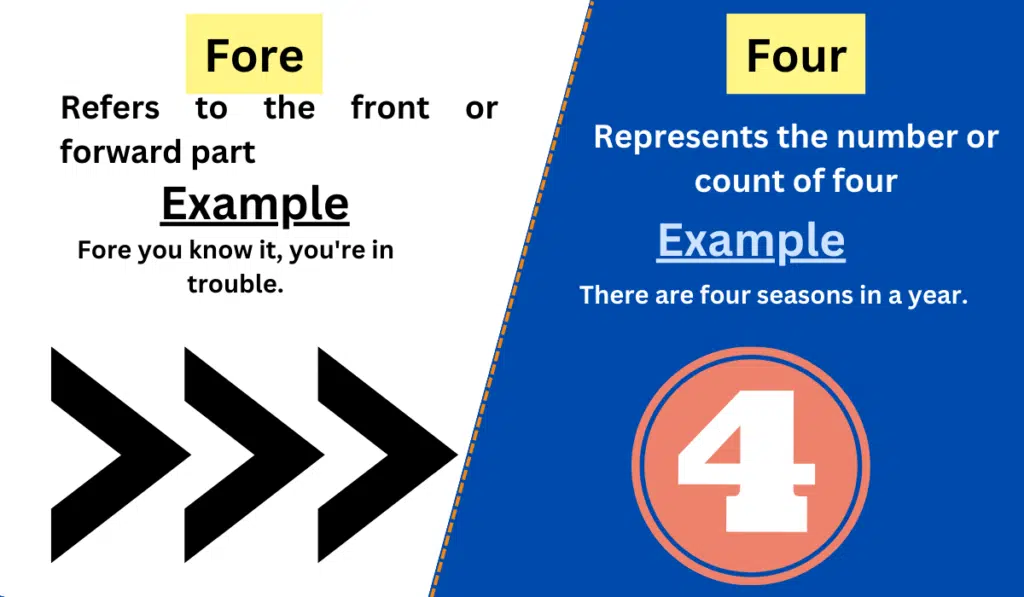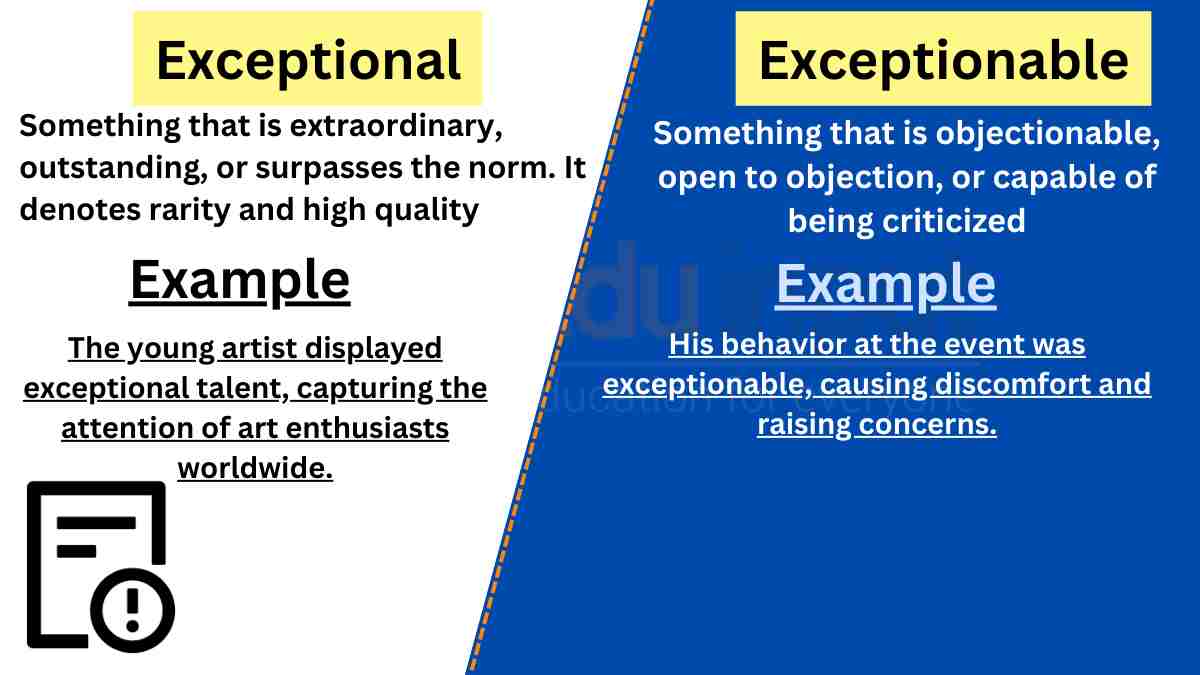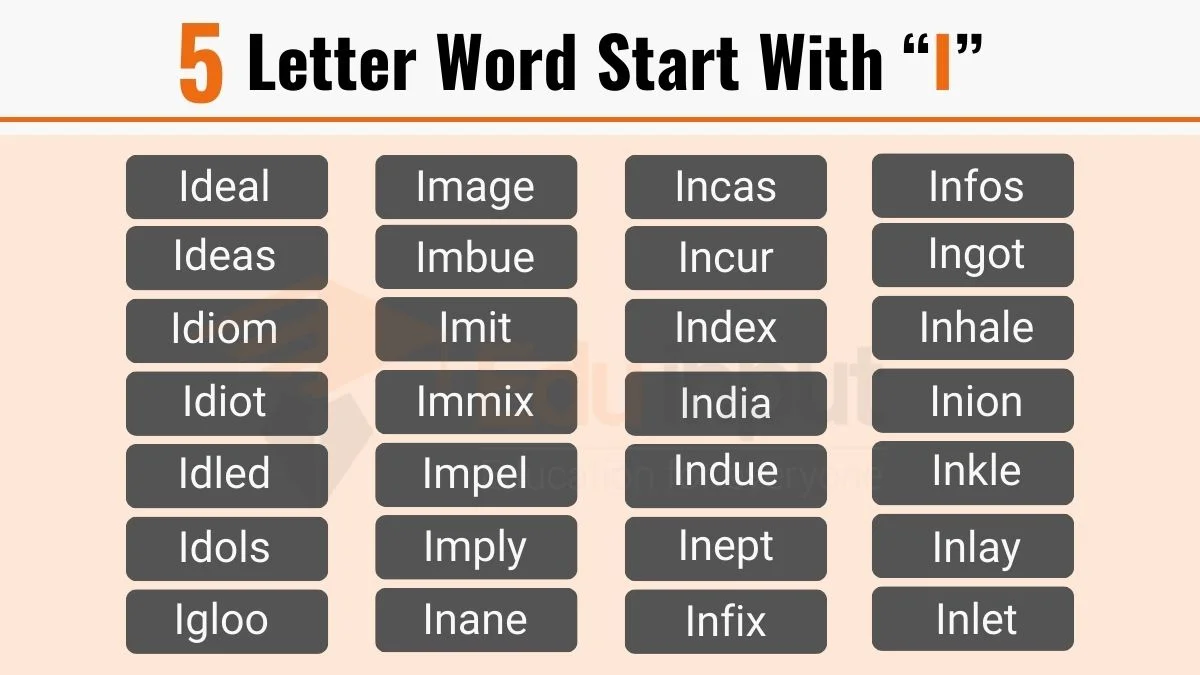Fore vs. Four:-Difference between and example
The English language often presents words that sound alike but have distinct meanings, leading to potential confusion. One such pair of words is “fore” and “four.”

Despite their similar pronunciation, these terms have different definitions and uses.
This article aims to clarify the contrasting meanings of “fore” and “four” and provide practical examples to help you discern and utilize these words accurately.
Meanings and Examples
Fore Definition
The definition of Fore is,
Definition: “Fore” is an adjective or adverb that typically refers to the front or forward part of something. It can also denote priority, anticipation, or direction.
Examples of Fore
- “The golfer’s ball soared into the fore, landing just short of the green.”
- “The hiker navigated through the dense forest, leading the way with a machete in the fore.”
- “Please move to the fore of the line if you need immediate assistance.”
Four Definition
The definition of four is;
Definition: “Four” is a cardinal number that represents the quantity or count of four items or individuals.
Examples of Four
- “There are four seasons in a year: spring, summer, autumn, and winter.”
- “She purchased four apples from the grocery store.”
- “The team won the championship for the fourth consecutive year.”
Difference between Fore and Four
| Category | Fore | Four |
| Meaning | Refers to the front or forward part | Represents the number or count of four |
| Example | “The golfer’s ball soared into the fore…” | “There are four seasons in a year…” |
| Usage | Describes position or priority | Indicates a quantity or count |
| Context | Golf, navigation, or instructions | Numerical counting or quantity |
Usage in a Paragraph
As the golfer teed off, the ball flew straight into the fore, surpassing the hazards and finding a favorable position near the fairway.
Meanwhile, at the picnic, the family of four enjoyed a delightful meal under the shade of a large tree.
The children laughed and played, counting to four as they took turns on the swing. Later that evening, they gathered around the campfire, listening to stories and marveling at the brilliance of the stars.
In these instances, the concepts of fore and four intertwined, showcasing their distinct meanings and applications.
Understanding the difference between “fore” and “four” allows for precise and effective communication. “Fore” describes the front or forward part of something, while “four” represents the quantity or count of four.
By recognizing their unique definitions and contexts, we can avoid confusion and accurately convey our thoughts.
Whether discussing golf shots, family sizes, or numerical counting, distinguishing between “fore” and “four” ensures clear and unambiguous communication.






Leave a Reply